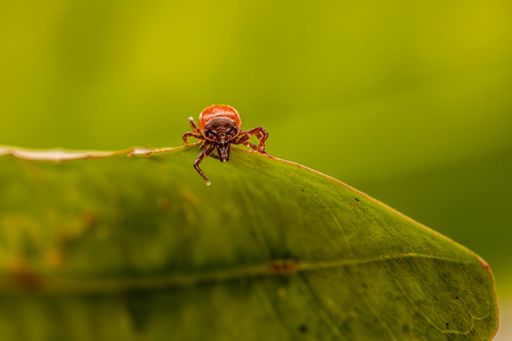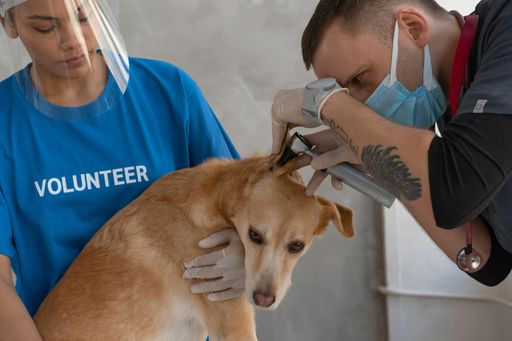Dog owners beware, because with an estimated eighty-five million domestic cats in the US, it's highly possible that one of them could pass an illness to your dog. While some of the conditions are straightforward to treat, some may require a visit to the vet. There is potential for fleas, ticks and ringworm to be passed from cat to dog, so it's worth being aware of both preventative treatment and remedies to treat the condition so your dog can be healthy all year round.
Internal Parasites
Common forms of parasites, including tapeworm, roundworm and hookworm, are easily shared between animals. Worms can be spread through the stool as the worm's eggs can move from the animal's intestinal tract. If a dog comes into contact with an infected stool then the worms may be spread. Symptoms can include vomiting, diarrhea, weight loss or a poor coat. To try and prevent such parasites forming it's important for your dog to have regular checks at the vets and prescription wormers can be used when necessary. Also if dogs and cats share the same back yard, then ensure that all stools are cleared as soon as possible.
Fleas and Ticks
Fleas jump around and can move from cat to dog leaving their mark, such as itching and red skin. Ticks can do the same and may infect your dog with Rocky Mountain spotted fever or Lyme disease. Even worse, if a flea eats a tapeworm egg then they may land on another animal who can ingest the flea and the tapeworm. With over two thousand types of flea, it's no surprise that there are many options for removing or preventing them. Treatment can be oral or topical and comes in the form of tablets, drops, shampoo, powder and sprays. If you prefer a natural way to remove fleas from your dog then try giving them apple cider vinegar and water to drink.
Skin conditions
Unfortunately dogs can catch the parasitic mite, Sarcoptes Scabiei from cats. This can cause red scaly skin, hair loss and severe itching and may eventually spread all over the body. Oral and injectable medications can be used to treat it and vets can also offer dips to treat or prevent it. Another skin condition that cats can pass to dogs is ringworm. This is a fungus on the skin, mainly on the paws, tail, face and ears, which creates scaly, red rings. A scratch is enough to pass the fungus and it can also live in soil meaning that cats or dogs can potentially contract it from outside. It is contagious and usually requires a visit to the vet. Although it can take months for the condition to clear, cleaning and disinfecting can speed up the healing. It can be prevented through a vaccine but generally it's sensible not to share bedding, cages and brushes where it can live.
Cats can pass various pests to dogs and as medical intervention can be expensive it's worth trying to prevent rather than treat the problem. Ensure that your dog has regular check ups at the vet and clear up after your dog or other animals immediately. Don't share grooming tools or bedding with pets and check for fleas and ticks so that your dog is healthy and happy.



















